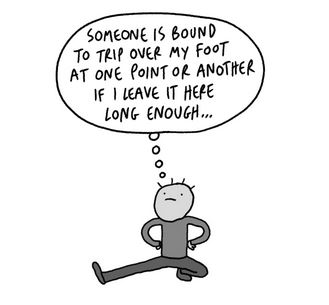JANUARY 2020. 7234 miles from Chicago, China reports the first death from a novel coronavirus. There is no evidence it can spread among humans.
I'm commuting to school and two women on the train are
...
[+]
The first time it really hits me, I'm staring at the peeling paint on the doorknob.
I long ago memorized the feeling of coming home – the click of my key in the door, the scent of Mom's stir fry on the stove, the twinkle of piano keys as she riffs Gershwin tunes from memory. But as I step into the dim light of my parents' house, I realize that of all these things, only the first remains. There is no light here anymore, no warmth or music. I wipe my feet on the mat, and am met with silence.
And then I see Dad sitting alone by the window, and in him I find the same.
From the doorway, his face looks startlingly gaunt – his cheeks are sunken and the skin beneath his eyes is nearly blue. His clothes hang loosely, empty around the ghost of a beer belly I remember.
"I parked in front of the mailbox," I say. "I know you hate that, but the driveway's too narrow for the truck, so..."
I'd thought maybe that would spur him – talking like everything's normal, like I'm in college again and coming home with an endless appetite and a sack of dirty laundry. But Dad's face hardly changes.
"Dad..." I say. Already my throat feels tight. "I'm –"
"Let's just get started." His voice is firm, ending my attempt at offering sympathy before it's begun.
For a moment, I let my eyes linger on his, searching for traces of the grief I'm sure he sees in mine. Though Dad's always been stoic, I ache now for his empathy.
I don't find any.
"I'll get the trash bags, then," I say, fighting down the lump in my throat. "To start, we'll make one for garbage, one for Goodwill, and one to take to the...for things you're keeping."
I stumble as the words "nursing home" almost slip from my mouth. Dad doesn't react – it was his idea, anyway, not mine. But I still can't stand the thought of this man – a piano tuner by trade, who's spent his life in and out of music stores or other people's houses, a flurry of wisecracks and tapping toes – sitting in a rocking chair for the rest of his life. I turn away, headed for the cabinet where I last remember the trash bags being.
When I return to the living room, we work in silence. I try not to notice how so much of this house still smells of Mom, untouched and achingly familiar – her sheet music propped up on the piano, open books left face-down to save the page, a grocery list in her untidy scrawl. A million little lasts, relics of a life interrupted.
But then something catches my eye as Dad tosses it – a hairbrush. Her hairbrush. Strands of silver cling to the bristles even now. I remember sitting in front of the mirror, Mom's hands warm against my scalp as she wrestled my hair into plaits, the brush catching on every tangle and making me yelp.
I turn to where Dad is sorting knickknacks. "You can't toss this."
He raises an eyebrow, and a hint of mirth flickers across his face.
"And why is that?"
"I mean..." I sputter, realizing I don't know how to explain myself. "It's her hairbrush."
Dad rubs his bald head. "Somehow, I don't see it doing me much good."
"But...we used to..."
"Mel, be sensible. I can't keep everything."
He's already turning away, bunching up a tablecloth and stuffing it in the bag. Realizing I've lost, I take one last look at the brush before doing the same.
We repeat this exchange a dozen times over – I hold up something Dad has elected to throw out, he blows it off. By the time the living room is nearly bare, we've filled six bags of trash and donations.
The "keep" bag is all but empty.
Suddenly exhausted, and still more frustrated, I plop down on the nearest seat – the piano bench. It creaks beneath my weight, and dust sticks to my hand as I run it across the maple rim. When I was a kid, I used to sit on the floor beside Mom, feeling the vibrations in my chest as her fingers trickled down the keys. Dad would plant a kiss on her head or start crooning along, and I would just laugh, enveloped in the harmony of happiness.
And then, there it is – sheet music to Moon River. The song is woven into my childhood like twine, and likely, I realize, the last one Mom ever played. My eyes skim the black ink, tracing the rise and fall of arpeggios.
For all my parents' talent, I'm not much of a musician. But I know enough to realize the last page lacks a double bar line – meaning it isn't the last page. There's one missing. The melody doesn't resolve. I slide the pages aside, searching for the ending, but find none.
"We can hire someone to move the piano," I say, sliding the sheet music back into place. "You'll have space, right? And obviously you'll have the time..."
"No."
I turn to face Dad, unsure if I've heard him correctly. "What?"
"No," he repeats. "I'm not keeping the piano."
"What do you mean?" I'm almost laughing in disbelief. "Of course you are. It's the piano."
Dad shakes his head. "Call Goodwill. See if they'll take it."
"But –"
"I don't want an instrument I won't play. It's just going to sit there gathering dust, reminding me of...of..." He swallows. "It's time to move on. Starting with the piano."
"I don't want to move on," I say. "I want... I mean, it's Mom."
Dad exhales. "Mel..."
"We couldn't even have a proper funeral." I suddenly wish I was wearing a mask, so he can't see my lip start to tremble. "We couldn't even get that...that closure. And you just want to forget? To throw everything away?" My voice breaks, and my lungs shudder a sob. "I didn't even get to say goodbye."
"Well, neither did I!" Dad snaps, and I flinch. But then the color drains from his face, and with it, the anger. "Neither...neither did I."
For a moment, I'm tempted to fall apart – to melt into his arms like I would have as a child, tell him how much I miss her. How I can't stop thinking of her alone in the hospital room, allowed no visitors, drowning in tubes and wires and a blue linen gown.
Instead, I take one step backward, and then another, until the space between us grows so wide and treacherous that I fear one false step will send me spiraling into the chasm.
And then I'm gone.
In the kitchen, dust floats in the air. I think about opening the cabinets, beginning to sort through the pots and pans Dad won't need anymore, but can't bring myself to move.
And then, from through the wall, I hear a sound so familiar it startles me.
The piano bench creaks.
Followed by the sound of arthritic hands across yellowed keys, playing a soft and under-tempo Moon River.
When I find my way back into the living room, Dad doesn't turn. I melt to the carpet at his feet, just as I used to years ago, drawing my knees up to my chest.
And there beside the piano bench, I let Mom's melodies wash over me, flowing from someone else's hands. Melodies that were once tangled in my shoelaces and braided into my hair, as much a part of me as skin. Somehow, it is everything at once – a hymn, a lullaby, a dirge – and it paralyzes me. I can do nothing but sit, staring at the snags and stains in the carpet until my tears blur the sight, and I am blind.
Until, at last, it ends.
But it doesn't. The last page is missing, and the chord hangs in the air unresolved. There should be more, and I wait for it – the closure, the double bar line. This is just intermission, an interruption, a grand pause.
Yet there is nothing else – just dead air, just my tears soaking the fabric of Dad's clothes as I lean my head against his knees, just the blurring lines between who we are and who we used to be. I am a child and I am grown. This is forever and it is now.
The last chord dissolves. I breathe in the broken melody and it fills my throat like the dust, burning all the way down. And though I don't find closure in the music, in the memories or piano keys, I find something else. Not healing. Not yet. But hope that it will come – a missing page resurfacing, an improvised last line.
Dad's hand finds mine and I squeeze it. And though life is not like music – its resolutions perfect and its every note in tune – here, in the silence of breaths and hands and heartbeats, we manage a moment of harmony.


